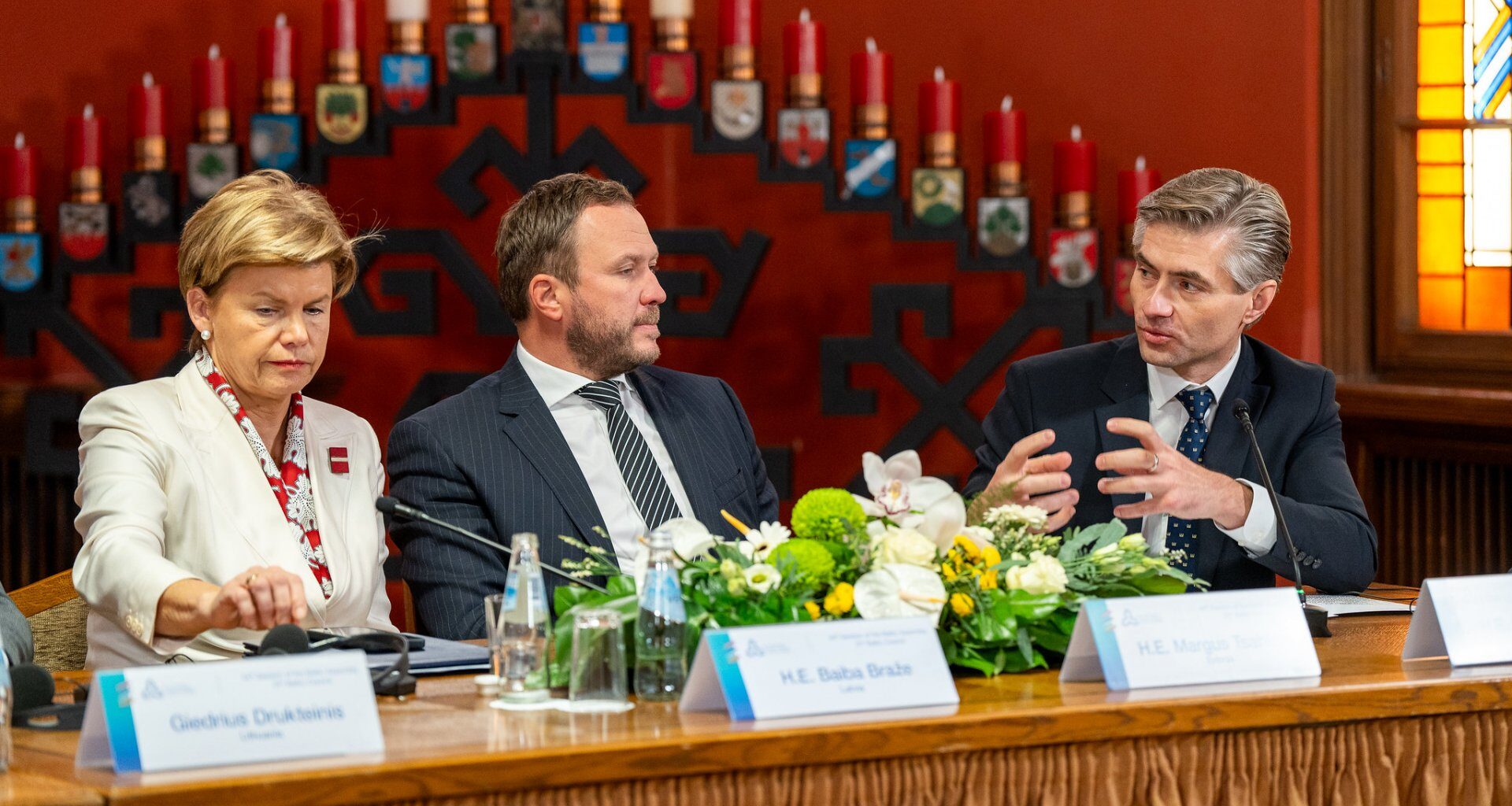BAKU, Azerbaijan, November 14. On November 14,
Foreign Minister Kęstutis Budrys participated in the 31st meeting
of the Baltic Council, held in Riga, Trend reports via the Lithuanian MFA.
The Baltic Council is a tri-lateral cooperation format between
Lithuania, Latvia, and Estonia, bringing together the Baltic
Assembly and the Baltic Council of Ministers
In his remarks, Minister Budrys addressed key security and
defense issues affecting the Baltic region, emphasizing the need
for closer regional integration in response to hybrid pressures
from neighboring authoritarian regimes.
He highlighted recent attempts to disrupt civil aviation through
the use of illicit balloons launched from across the border and
their resulting risks to flight safety. He also underscored the
importance of the transatlantic partnership for regional security
and the continued strengthening of NATO’s engagement along the
Alliance’s Eastern flank.
The meeting also covered the implementation of regional defense
initiatives, including the drone defense concept and the Baltic
Defense Line.
“Baltic unity has always been our strongest asset in difficult
times. Today, as neighboring authoritarian regimes shape the
geopolitical environment, unity is more important than ever. We
stand at the forefront of Europe’s defense and its transformation.
We need a coherent joint strategy to ensure the resilience of the
Baltic states, counter hybrid threats, and strengthen deterrence.
Only coordinated action, based on shared values and strong
political will, can guarantee the security, prosperity, and
long-term stability of our region,” Minister Budrys said.
He also stressed the significance of strategic regional
transport and energy infrastructure projects. According to Budrys,
the successful synchronization of Lithuania’s, Latvia’s, and
Estonia’s power grids with the Continental European system this
year marked a major geopolitical milestone—ending decades of
dependence on legacy systems and opening a new stage in the Baltic
region’s strategic autonomy. However, he noted that ongoing
regional projects must continue to advance.
The minister underscored the strategic significance of transport
and logistics networks, not only for mobility but also for
enhancing economic resilience. He stressed the necessity of
ensuring the seamless execution of pivotal regional infrastructure
projects, such as Rail Baltica, Via Baltica, and others, which are
vital for fostering connectivity, and called for adequate EU
funding to support these initiatives in the upcoming financial
framework.
At the Riga meeting, the Baltic Council adopted its annual
declaration, assessing the progress of Baltic cooperation in 2025
and setting forth priorities for the year ahead.
Latvia holds the chairmanship of the Baltic Council of Ministers
for 2025, with Estonia scheduled to take over in 2026.
